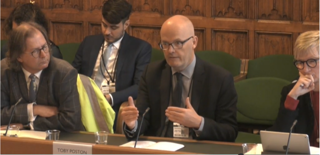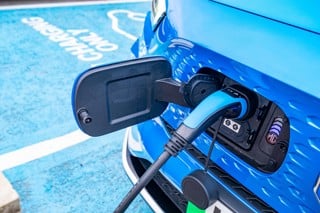The fleet industry will be looking for clarity from the Treasury, when the Chancellor, Jeremy Hunt, delivers the Autumn Statement tomorrow (Thursday, November 17).
Future benefit-in-kind (BIK) tax rates will hopefully be revealed, while decisions around fuel duty and the propsect of vehicle excise duty (VED) are also eagerly anticipated.
The Autumn Statement also takes place less than eight weeks after the tax-cutting mini-budget. That saw the pound tumble against the dollar, Government borrowing costs soar and the Bank of England make an emergency intervention.
Hunt has already reversed much of Mr Kwarteng's mini-budget, but is looking to go further in order to cut the UK's debt.
"Decisions of eye-watering difficulty" lie ahead, he has warned.
He argues tax rises are necessary to help tackle inflation – prices have risen 11.1% in the year to October, up from 10.1% the previous month – while the Government also wants to show financial markets that it is responsible.
According to the latest HMRC figures available, Treasury saw an 18% year-on-year decline in the amount of tax it collected from company cars during the pandemic.
BIK paid by company car drivers, and national insurance contributions (NICs), paid by employers, fell by £450 million, from £2.51 billion to £2.06bn in 2020/21.
It was the lowest tax take from company cars for almost a decade when, in 2014/15, BIK and NICs were worth £1.9bn to the Government.
Toby Poston, director of corporate affairs at trade body British Vehicle Rental and Leasing Association (BVRLA), said: “The Government has created a big decline in BIK revenue by taxing drivers out of their cars.
“They must now avoid repeating that mistake by raising rates on electric company cars by too much, too quickly.
“Lost company car tax revenues will only be recovered by growing the total company car parc, not by over-taxing it and pushing people into non-revenue-generating alternatives such as grey fleet.”
Meanwhile, the Treasury has previously warned that new sources of revenue would be needed as the uptake of EVs increases.
Fuel duty and VED combined raise about £35 billion for Government coffers but, according to the Office for Budget Responsibility (OBR) the growing share of electric cars will cut motoring tax revenues by £2.1bn by 2026-27.
The Chancellor is understood to be considering making electric vehicles (EVs) subject to VED for the first time.
EVs are currently exempt from the annual £165 VED standard rate and the £335 "premium supplement" on new cars costing £40,000 or more.
Alison Bell, operations director at Venson Automotive Solutions, said: “Around one in six new cars bought in Britain this year are fully electric. Whatever decision is made to address the shortfall in motoring tax revenue, the Government won’t want to stall the uptake of EVs.
"Any solution introduced needs to be a fair and cost-effective solution for both business and leisure drivers, with enough incentive to ensure the UK’s electric transition continues at pace.”
In terms of fuel duty, last March, when Chancellor, Rishi Sunak, said that the 5p fuel duty would be in place until March 2023.
The AA is pushing for that reduction to continue post March 2023 due to the continued high pump prices, and cost of living crisis.
With petrol now in the region of 165p a litre and diesel close to 190p, this compares respectively with 167.3p and 179.7p a litre just before the fuel duty cut.
Petrol, even with 5p off fuel duty (6p with VAT) is close to where it was when the Chancellor decided to act, and diesel is even more of a nightmare for drivers and businesses.
Edmund King, AA president, said: “Any increase in fuel duty would hit households and businesses and just further fuel inflation.
“The 5p cut in duty should not be removed in March especially if fuel prices remain high as the Treasury benefits from VAT on higher fuel prices.”
He added: “The road to electrification must not be stalled by removing tax incentives for fleets and individuals to choose EVs. This is crucial in environmental terms and vital to speed up the introduction of EVs onto the second-hand car market.
“On expenditure we have asked the Chancellor not to skimp on road maintenance funding as it is the number one concern for drivers and defective, potholed roads cause extensive damage and can be fatal for those on two wheels.”






















Login to comment
Comments
No comments have been made yet.